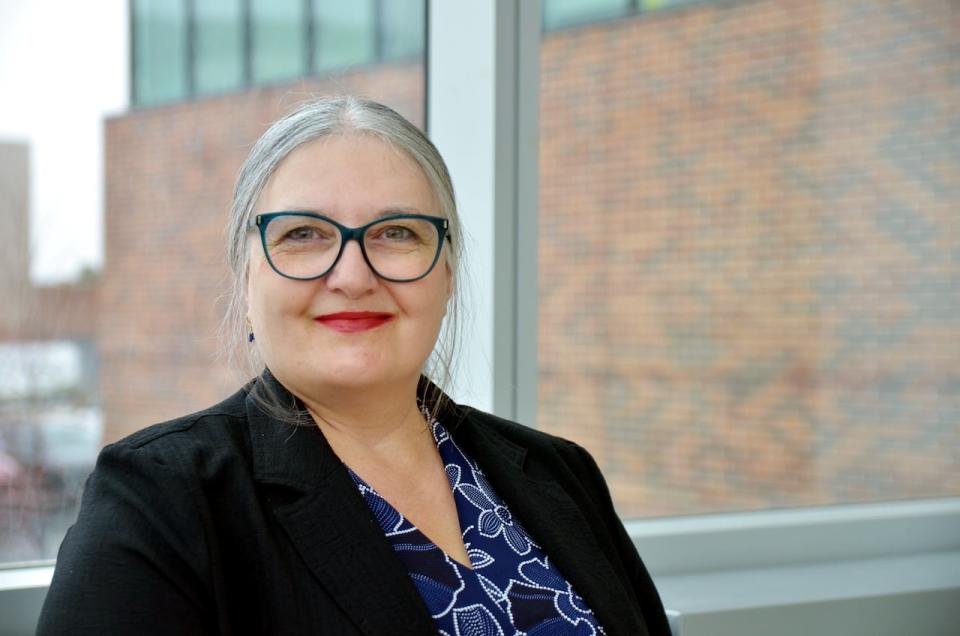
Trans Support N.L.’s Logan St. Croix says the funding is going towards bridging the gap between the medical needs of the transgender community and physicians. (Have a nice day photo/Shutterstock )
An injection of hundreds of thousands of dollars is going toward bridging the gap between the medical needs of transgender people in Newfoundland and Labrador and accessing primary health care, says an organizer.
The federal government is committing $571,400 to volunteer-based organization Trans Support N.L. to create a toolkit that will be a resource to improve doctors’ treatment of transgender patients.
Logan St. Croix, who sits on the board of directors, said it’s hard enough getting a family doctor in the province, let alone one who is comfortable with providing transgender patients with appropriate care.
“That is what we’re hoping to change here,” they recently told CBC News.
“We’re also going to build this toolkit in a way that really sets everyone up for, you know, creating gender-affirming health-care spaces.”
The toolkit will contain medical information about treating transgender patients as well as demystifying myths around what primary health-care entails for transgender people, said St. Croix.
It will also be useful for other health-care professionals, like nurses, to ensure they’re providing “equitable care” for patients and provide the best level of care for their patients.
“We’re really hoping this is going to build some good relationships between the trans community and health-care system here in the province,” they said.
St. Croix said the federal funding will primarily go to salaries for project facilitators across the province.
“We want to make sure that we’re reaching not just the island, but Labrador as well, to make sure that providers there have that same sort of access to the toolkit, but also the workshop training that will be going along with that.”
Primary health-care gap
St. Croix said health care for transgender people is a part of primary health care as a whole.
“As a trans person, I have regular primary health-care needs as well, you know, when I have an infection, if I have a cold,” they said.
Some doctors might shy away from providing transgender people with medical care because they don’t feel capable of it, which they want the toolkit to address.
“We’re hoping this will kind of ease the path to getting more training around.”
St. Croix said they consider themselves to be lucky with their primary health-care provider, who is also the primary health-care provider for the majority of transgender people in the province.
“But she’s also only one person,” St. Croix added.
There are transgender people in the province who have gone to their long-standing family doctor for medical care to be told the doctor doesn’t know how to provide their specific health-care needs and offered to send them to another doctor, they said.
Gaps in research
Sevtap Savas, a professor and cancer researcher at Memorial University’s medical school, said she was happy to hear this toolkit is in development.
While not a member of the transgender community, she said as a cancer researcher she’s learned about barriers to health care.
“For example, one transgender individual I know in Newfoundland and Labrador, their family doctor is not trans-friendly,” she said.
That means the patient has to go to walk-in clinics, which she said can discourage people from seeking medical treatment.
“We really have work to do here because nobody would like to increase human suffering,” said Savas.


Sevtap Savas, a professor and cancer researcher at Memorial University, says she’s hopeful that medical care for transgender people will be improved. (Mike Moore/CBC)
She said one issue she’d like to see addressed through the toolkit is a way of easing the confusion in the medical records when someone has transitioned but their medical records still list the gender assigned at birth.
Savas is hopeful that there is interest in improving the health-care system for transgender people.
“I’m very hopeful that things are going to get better.”
As a cancer researcher, Savas said she’d like to also see more research into cancer risks for transgender people, adding there currently is no national cancer security guidelines for this group.
Download our free CBC News app to sign up for push alerts for CBC Newfoundland and Labrador. Click here to visit our landing page.

